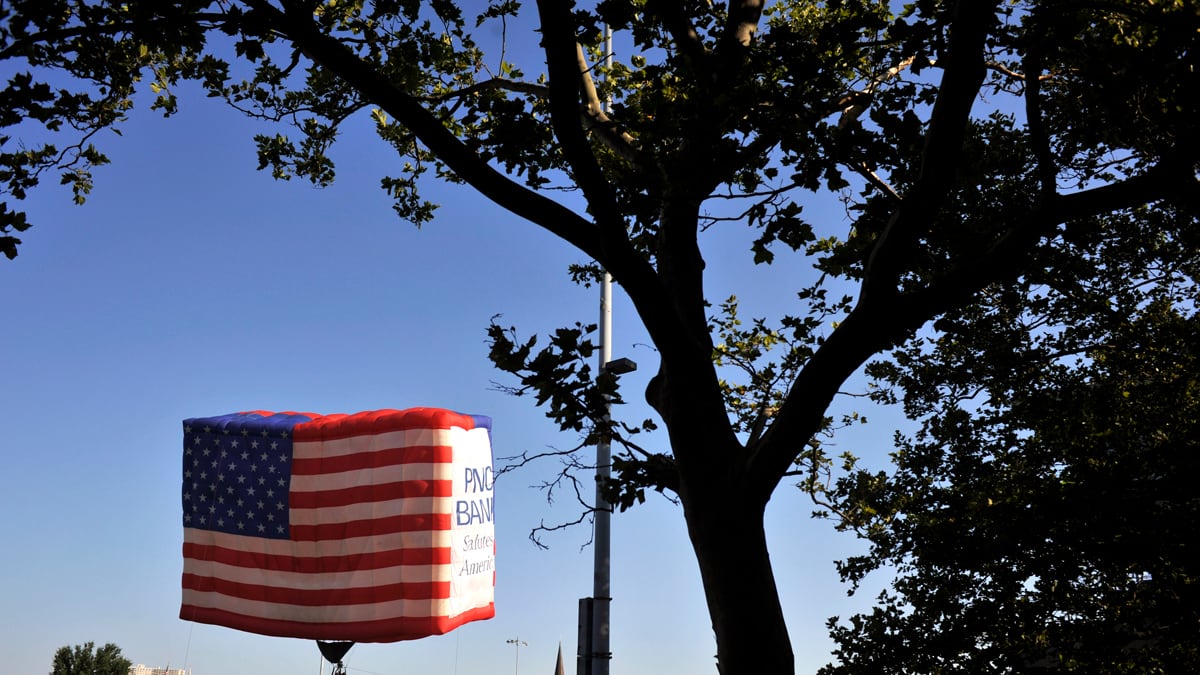For years, commentators have been arguing that America’s distinctive role in the world has dissipated. Michael Kinsley doesn’t think that America is the greatest country. Charlie Rose thinks we’re in decline. Edward Luce argues that we are in an “age of descent.” Most recently, we heard Aaron Sorkin’s protagonist in The Newsroom proclaim that America is so far from the greatest country in the world that we’re only leading in defense spending, the number of incarcerated people per capita, and the number of adults who believe in angels.

In other words, American exceptionalism—the notion that America should, and does, play a special role in world affairs—is unpopular with many elites. The American people as a whole, however, feel differently. A 2010 Gallup poll found that 80 percent of the country believed in American exceptionalism because of our history and the Constitution. Though Republicans were more likely to take this view than Democrats, across all political affiliations the answer was a resounding, “Yes, America is exceptional.”Given the broad consensus on American exceptionalism, it seems fair to ask what role, if any, it will play in the upcoming presidential campaign. Unlike topics such as taxes or health care or foreign policy, American exceptionalism isn’t normally thought of as a campaign issue, per se. Yet it undoubtedly informs the way many voters look at the world, and may also inform the choices they make at the ballot box.
President Obama has a complicated history with American exceptionalism. Back in 2009, he created some controversy when he sent mixed signals on the subject. On the one hand, he appeared to belittle the idea, saying, “I believe in American exceptionalism, just as I suspect that the Brits believe in British exceptionalism and the Greeks believe in Greek exceptionalism.” But in those same remarks, he also said, “I think that we have a core set of values that are enshrined in our Constitution, in our body of law, in our democratic practices, in our belief in free speech and equality, that, though imperfect, are exceptional.” Since that time, Obama has clearly stated that he believes in American exceptionalism. Still, Romney—who wrote a book titled, No Apology: The Case for American Greatness—has tried to use the issue to score political points against Obama. “Our president doesn’t have the same feelings about American exceptionalism that we do,” Romney said in March. “And I think over the last three or four years, some people around the world have begun to question that.” Soon after, Obama fired back: “It’s worth noting,” he said, “that I first arrived on the national stage with a speech at the Democratic Convention that was entirely about American exceptionalism and that my entire career has been a testimony to American exceptionalism.” Romney may feel he has an opening on this issue because many Americans don’t seem to buy Obama’s commitment to American exceptionalism. The Gallup poll from 2010 asked respondents whether they thought that Obama believed America was the greatest country in the world. That number was 86 percent for Ronald Reagan, 77 percent for Bill Clinton, and 74 percent for George W. Bush. Obama’s score? Just 58 percent. How could Obama change this number? And how could Romney take advantage of American exceptionalism’s popularity beyond simply using it to pummel his opponent? Our sense is that when Americans express support for American exceptionalism, they are really expressing support for sets of policies that preserve our competitive standing in the world and promote our values abroad. Policies that will help America compete with, and stand up to, non-democratic rivals like China and Russia seem likely to appeal to voters who express enthusiasm about American exceptionalism.
As it stands, America’s role in the world—will we continue to be the world’s most powerful country? how important is it for us to ensure that this is the case? and how should we exercise that power?—is in many ways the largest theme in this campaign. It’s true that the economy will end up being the explicit focal point of this election. But either of the candidates would be wise to link their economic platforms, as well as their foreign policy positions, to the concept of American exceptionalism.







